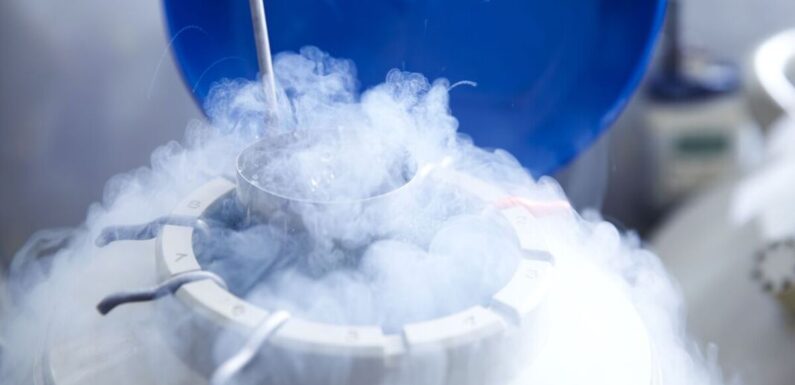

Ms Sussman told The Economist: “Nine years ago I moved from New York City to start a new job in Washington, DC. I was in my early 30s and had just broken up with an older, divorced man – I wanted a child and he didn’t want any more. A friend told me that men in Washington tended to be more interested in settling down than men in New York.”
In Washington Ms Sussman said when she started dating that she was disappointed by how many bad dates she went on.
She wrote: “Some dates I went on were so bad they were funny. Most were simply boring. There was one brief moment of hope when I met an interesting man the old-fashioned way, through a friend.
“I invited him to a dinner party at my apartment during which he was glued to his phone. Afterwards, a friend sitting next to him confirmed my suspicions: my date had been browsing Tinder.”
Ms Sussman said what made the dates harder was knowing that she wanted children. She said she was open to raising children even without a partner. She said: “As the months and years ticked by, the idea became increasingly appealing.
“It seemed like a way to buy time while looking for a partner. Amid the relentless, disappointing swiping, I wanted to feel as though I had some control over my future.”
After conducting thorough research, she chose a clinic in Washington DC, an experience she described as like being “in a dystopian rom-com in which we were all competing to defrost our eggs”.
Ms Sussman said there were several reasons why women and men take the decision to freeze their eggs or sperm respectively.
Don’t miss…
Vicky Pattison in tears as she’s forced to halt fertility treatment[LATEST]
BBC’s Woman’s Hour presenter Emma Barnett welcomes baby after IVF[LATEST]
India overtakes China as world’s most populous country–see the graphs[LATEST]

She said it was both due to cultural and economic shifts: “In the 20th century, as social mores changed and science advanced, when and if to have kids became a choice, at least in richer countries. Both sexes typically began to exercise that choice later, often using the extra time to build up their earning potential.
“The high cost of housing and childcare means that even if you are a pair of high earners, having children rarely seems like an economically rational thing to do. So it’s not surprising that many people put it off until the last minute.”
Ms Sussman added: “Over the past decade, egg-freezing has emerged as the market’s solution to the combination of social, biological and economic pressures that make it hard for women to conceive when they finally reckon they’re ready to try.”
Ms Sussman said that it was these economic pressures that had “shaped” her own approach to dating, particularly after the death of her father.
She said: “One lesson I absorbed from losing my father when I was young is that relying on a man’s income is unwise.” However, while the procedure has become more widely available in recent years, the chances of success, later on, are not certain.
Ms Sussman said: “A Spanish study from 2016 suggests that women aged 35-39 when they freeze their eggs have almost a 30% chance of carrying a baby to term. Some experts are more pessimistic: in 2020, Robert Winston, a professor of fertility at Imperial College London, put the probability of getting a baby out of a frozen egg at about 2 percent.”
Ms Sussman said the odds very much depended on how old a woman was when they chose to freeze their eggs with those under 35 having the best chance.
Source: Read Full Article